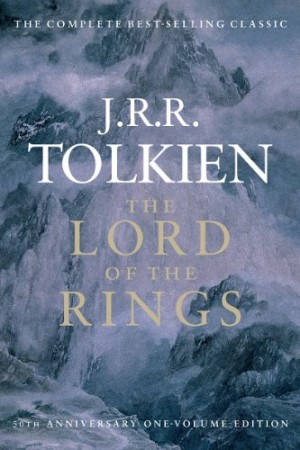In this episode of the Libertarian Tradition podcast series, part of the Mises Institute’s online media library, Jeff Riggenbach makes the case that the author of The Lord of the Rings, J.R.R. Tolkien, can be counted as a libertarian.
Editor’s Note: A transcript is unavailable. This early episode was never turned into a Mises Daily article like most of the others.
Here is a brief summary, however:
Riggenbach argues that The Lord of the Rings is “both an allegory of the inevitable fate that waits for all attempts to defeat evil power by power and an allegory of power exerted for domination.” The story is a dramatization of Lord Acton’s famous dictum that “power tends to corrupt, and absolute power corrupts absolutely.”
After a delving deeper into Lord Acton and his dictum, Riggenbach reads a couple of passages from one of Tolkien’s letters to his son, Christopher, that were also quoted by Alberto Mingardi and Carlo Stagnaro in their Mises Daily article, “Tolkien v. Power” (February 21, 2002). I quote the passages below for your convenience, but the whole article is well worth reading:
My political opinions lean more and more to Anarchy (philosophically understood, meaning abolition of control not whiskered men with bombs) — or to ‘unconstitutional’ Monarchy. I would arrest anybody who uses the word state (in any sense other than the inanimate realm of England and its inhabitants, a thing that has neither power, rights nor mind); and after a chance of recantation, execute them if they remained obstinate! (The Letters of J.R.R. Tolkien, 1995, p. 63; see NYT Review.)
The proper study of Man is anything but Man; and the most improper job of any man, even saints (who at any rate were at least unwilling to take it on), is bossing other men. Not one in a million is fit to it, and least of all those who seek the opportunity. (The Letters of J.R.R. Tolkien, 1995, p. 64)
Another relevant quote from Tolkien’s letters that Riggenbach doesn’t recite is this:
If we could get back to personal names, it would do a lot of good. Government is an abstract noun meaning the art and the process of governing and it should be an offence to write it with a capital G or so as to refer to people. If people were in the habit of referring to ‘King George’s council, Winston and his gang,’ it would do a long way to clearing thought, and reducing the frightful landslide into Theyocracy. (The Letters of J.R.R. Tolkien, 1995, p. 63)
Riggenbach also relates Tolkien’s description of the Shire as having hardly any government. Finally, he points to Aragorn’s reluctance to be king and Tolkien’s belief that such a man, a man who does not want power, would make a good king. This last, I think, must be understood in light of Tolkien’s second-best preference for unconstitutional monarchy and his belief that not one man in a million is fit to rule other men. One can’t very well design a political system around such a rare occurrence.















